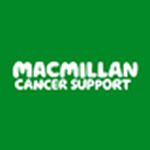Wednesday 19 February 2025
Lorrie Cameron
Some cancer treatments can cause side effects similar to menopause symptoms.
If you are a younger person having periods, you may experience an early menopause.
It can feel challenging to face the symptoms and implications of the menopause on top of those caused by your cancer, diagnosis and treatment.
This page has information about menopause and cancer, ways to manage and reduce the symptoms you might experience, and how Maggie’s can help.
Menopause is a natural part of the aging process caused by a change in hormone levels.
Your ovaries gradually produce less oestrogen and progesterone, your periods stop, and pregnancy becomes no longer possible.
It usually happens to people between the ages of 45 and 55, and it can happen to some transgender men and non-binary and intersex people too.
Some cancer treatments can affect your hormones and trigger menopause symptoms or an early menopause.
In women, these treatments include:
Early menopause is when your periods stop before the age of 45.
In some people, menopause caused by cancer treatment will be temporary, but for others it will be permanent. This depends on:
Even if you have already been through the menopause naturally, you may experience menopause symptoms again during cancer treatment.
This is especially the case with some hormone therapies for breast cancer or having surgery to remove your ovaries.
The change in hormone levels during the menopause can cause various symptoms.
They are often experienced more intensely when menopause is caused by cancer treatment, because your hormone supply stops suddenly.
Symptoms of the menopause include:
Menopause symptoms can affect different areas of your daily life, including your relationships, social life, work, and physical and mental wellbeing.
This can feel like a lot to deal with when you are facing the other challenges of a cancer diagnosis.
Our cancer support specialists are here for you, and we run menopause workshops across our centres. Visit your nearest Maggie’s centre to find out more.
Hormone therapy for prostate cancer or male breast cancer reduces or blocks the production of testosterone.
This can cause many of the symptoms associated with the menopause, as well as erectile dysfunction and breast enlargement (gynaecomastia).
This is sometimes called the male menopause, or the andropause. It can affect some transgender women and non-binary and intersex people too.
There are several interventions that can help you manage your menopause symptoms and your long-term health.
Some interventions may interfere with your cancer treatment, so it is important to speak with your doctor to discuss them.
Some herbal products for relieving menopause symptoms are not recommended for people with cancer. Black cohosh and St John's wort, for example, can interact with certain cancer drugs.
Cancer support specialists at your local Maggie’s centre will be able to offer you more information about intervention options before you speak with your doctor.
If you are below 60 years of age and your cancer is not oestrogen sensitive, you may be able to take Hormone Replacement Therapy (HRT).
HRT replaces oestrogen and progesterone, which fall to low levels during the menopause.
There are many different types of HRT, and there are also non-hormonal medications that you may be able to take to ease symptoms.
Your healthcare team can prescribe the medication that is right for you.
The change in hormone levels during the menopause can negatively affect:
If you are experiencing a medically induced menopause, your hormone levels will fall earlier than normal, so it is important for you to take measures to reduce these risks.
NICE recommend HRT for anyone under the age of 50 experiencing a medically induced menopause who has a non-oestrogen sensitive cancer. Your healthcare team will be able to advise whether HRT is an option for you.
There are also some positive lifestyle changes you can make to help you cope with a medically induced menopause and its symptoms.
Maggie’s runs a range of workshops on nutrition, sleep, menopause and managing stress, as well as activities like yoga, tai chi, meditation and gentle exercise.
Contact your local Maggie’s centre for more information.
You may have concerns about the impact of your cancer treatment on your fertility, whether you were planning a family soon or not.
It is important to raise your concerns to your healthcare team early on before treatment starts. They can discuss any possible measures to preserve your fertility.
The emotional impact of loss of fertility or uncertainty around fertility can be very difficult, and it is understandable that you may need extra support.
Find out more about fertility and cancer or speak to a Cancer Support Specialist at your local Maggie’s centre.
An early menopause or menopause symptoms can seem like another big step in a life already affected by cancer.
You may have lots of questions for your healthcare team about menopause treatments and managing your symptoms, or you may be feeling overwhelmed and unsure what to ask.
Here are some points to consider when discussing your early menopause or menopause symptoms with your healthcare team.
For more guidance, visit your local Maggie’s centre. Our Cancer Support Specialists are here to listen and support you, offering advice and information that is right for you.
Many cancer symptoms interlink with the menopause.
At times, it can be hard understand whether you are experiencing menopausal symptoms, treatment symptoms or side effects of medication.
Look at the blogs and links on this page to find out more about coping with early menopause or menopause symptoms caused by your cancer treatment.
You may want to talk with others about what you are experiencing. It can help to hear that what you’re feeling is not unusual.
Visit your local Maggie’s centre to talk to our Cancer Support Specialists, join one of our menopause workshops, or connect with others in a similar position to yourself.
Last review: Oct 2024 | Next review: Oct 2027
Find out more about surgical menopause including positive and negative effects.
From Australasian Menopause Society
Last reviewed: 13 January 2022
Find out more about how treatment for cancer can cause early menopause and how to manage the symptoms.

From Cancer Research UK (CRUK)
Last reviewed: 06 January 2022
Information and tips for managing hot slushes and sweats for women with cancer.

From Cancer Research UK (CRUK)
Last reviewed: 10 March 2022
Special considerations for women facing hereditary cancer associated with early onset menopause and symptom management.

From FORCE
Last reviewed: 27 September 2023
Information about surgical menopause and links to forums with personal experiences as well as many other resources to help women manage menopausal symptoms.

From HysterSisters (US)
Last reviewed: 13 January 2022

From Macmillan Cancer Support
Last reviewed: 27 September 2023
Find services, workshops, programmes and events for people affected by cancer and navigating the menopause.

From Menopause and Cancer
Last reviewed: 09 November 2023
A podcast hosting conversations with people with cancer and medical professionals to learn about treatments available for women with a cancer diagnosis.

From Menopause and Cancer
Last reviewed: 27 November 2023
Information for women with ovarian cancer about how treatment may cause early menopause in younger women and worsening symptoms for older women.

From Ovacome
Last reviewed: 13 January 2022
Lisa Punt from Maggie's shares how support and knowledge can really help women deal with the triple impact of cancer diagnosis, treatment and induced or surgical menopause.
From Stella
Last reviewed: 20 January 2022
To find your nearest Maggie's centre, enter your postcode or town below.
Stay up to date with our news and fundraising by signing up for our newsletter.
Sign up